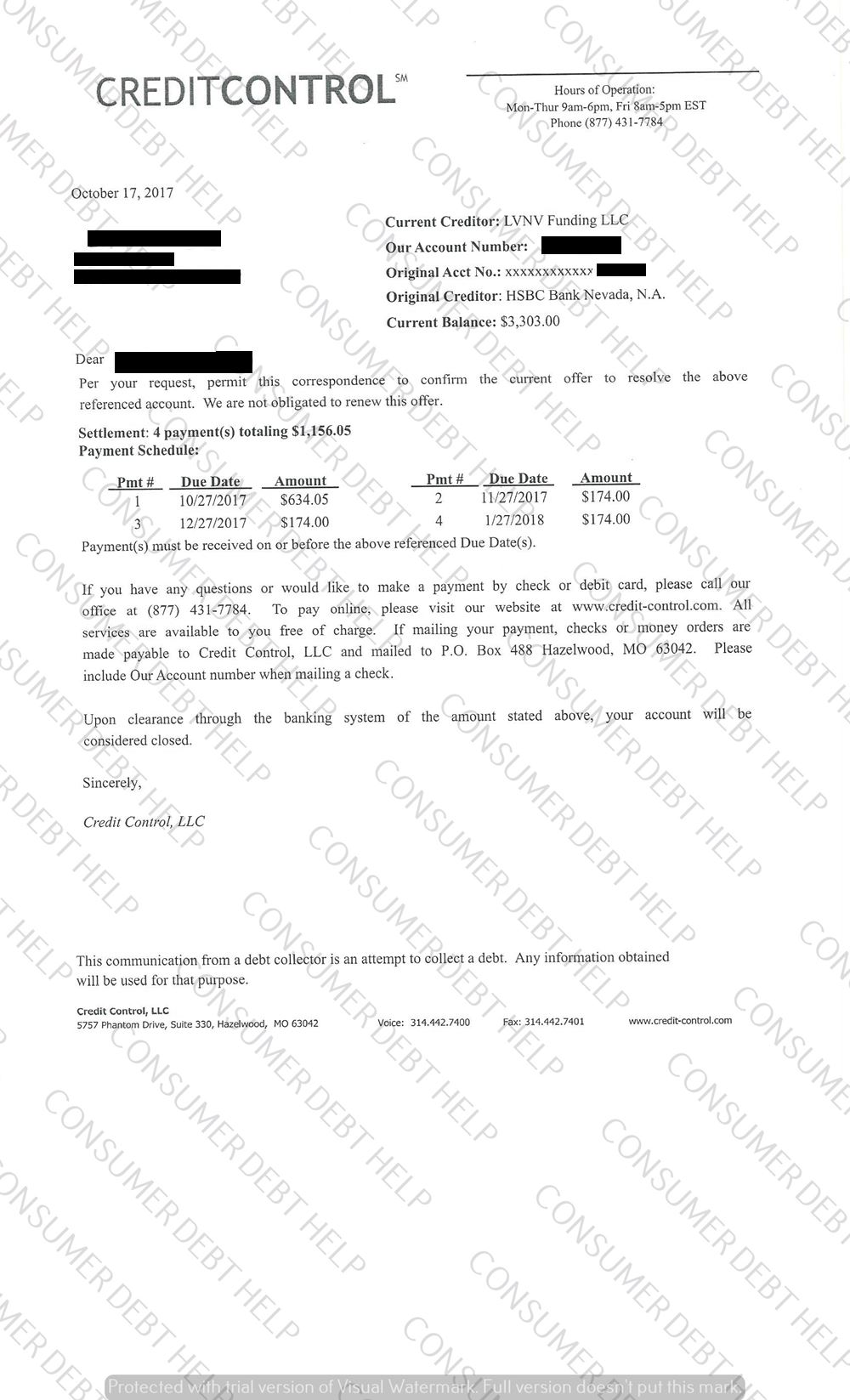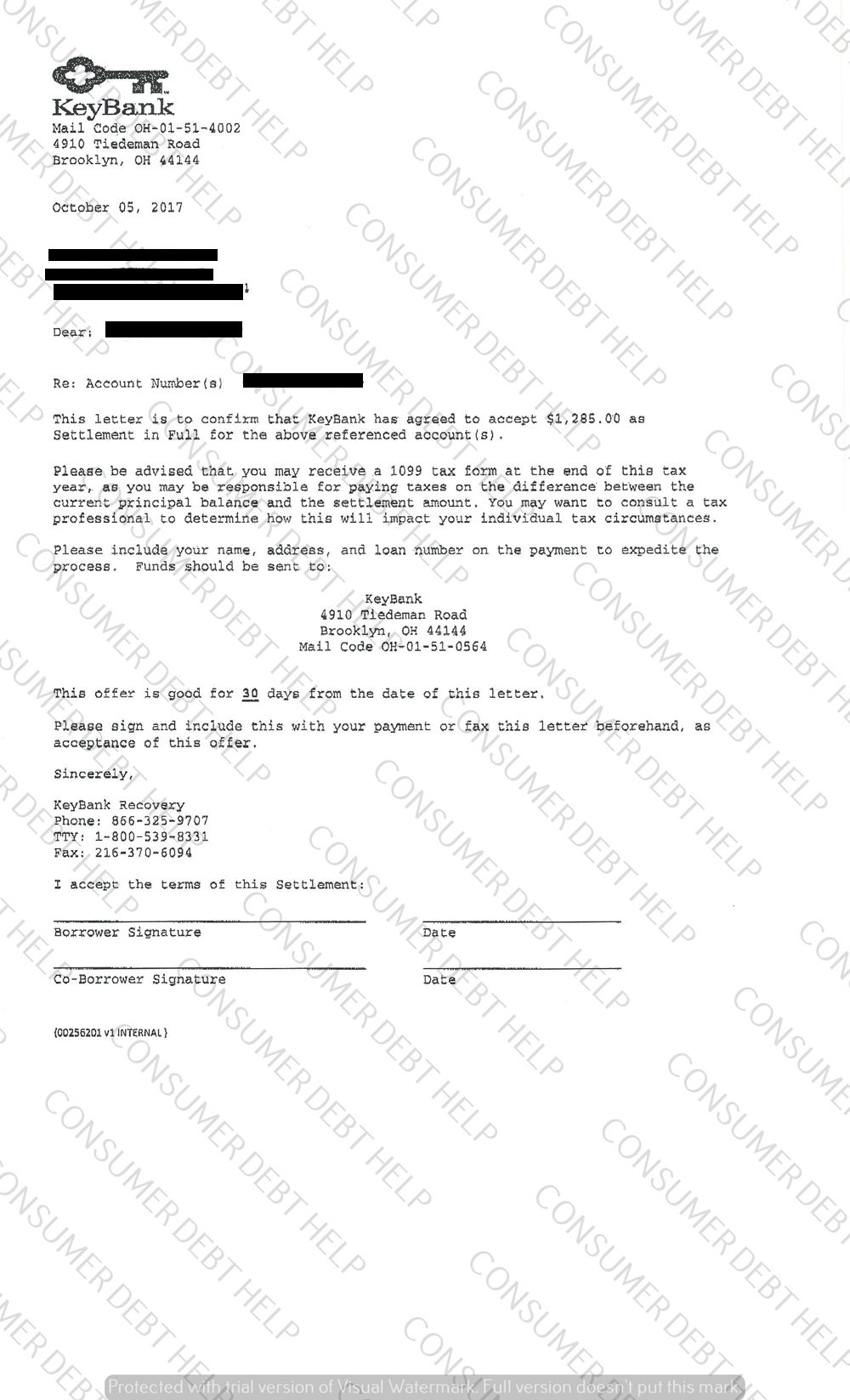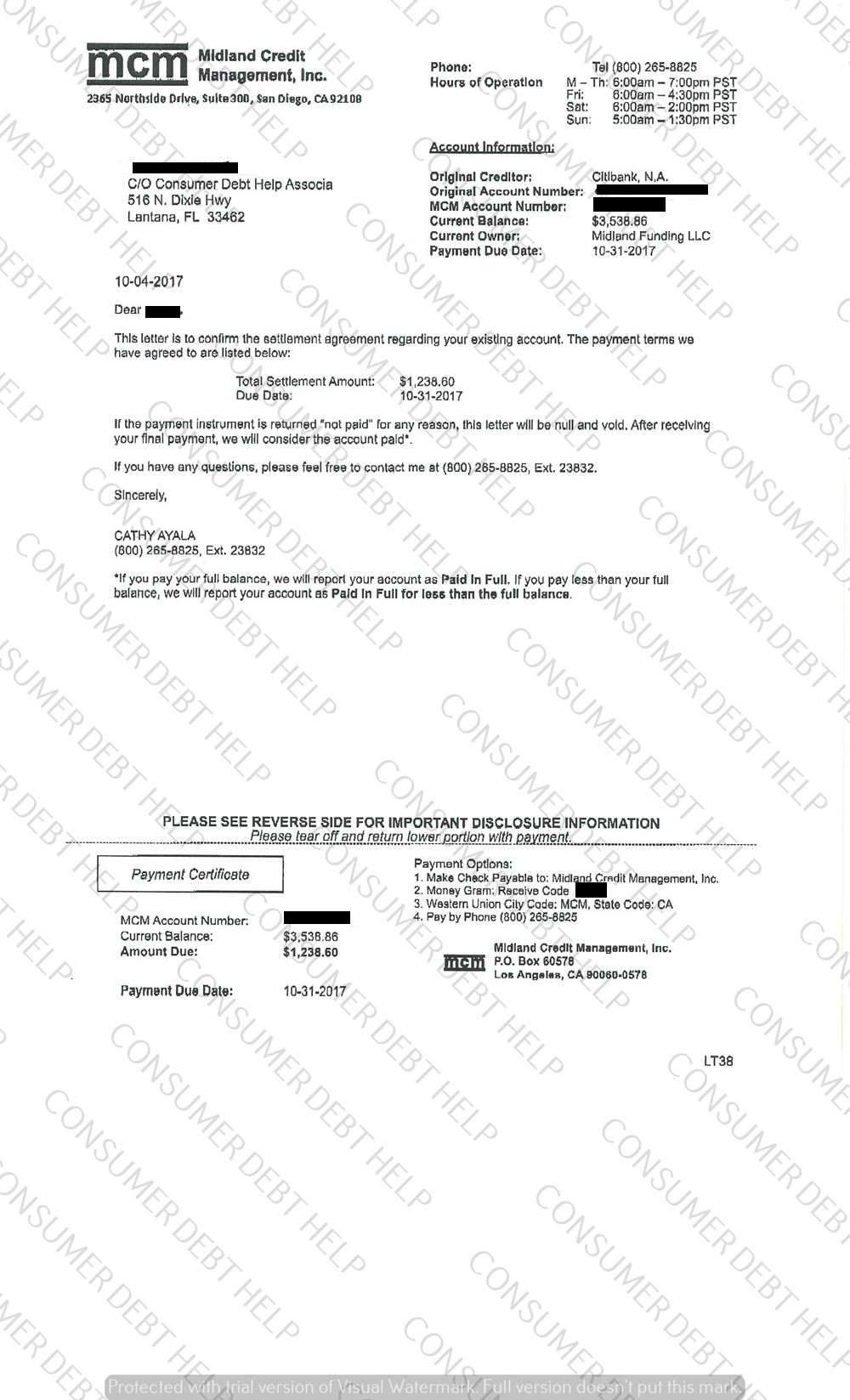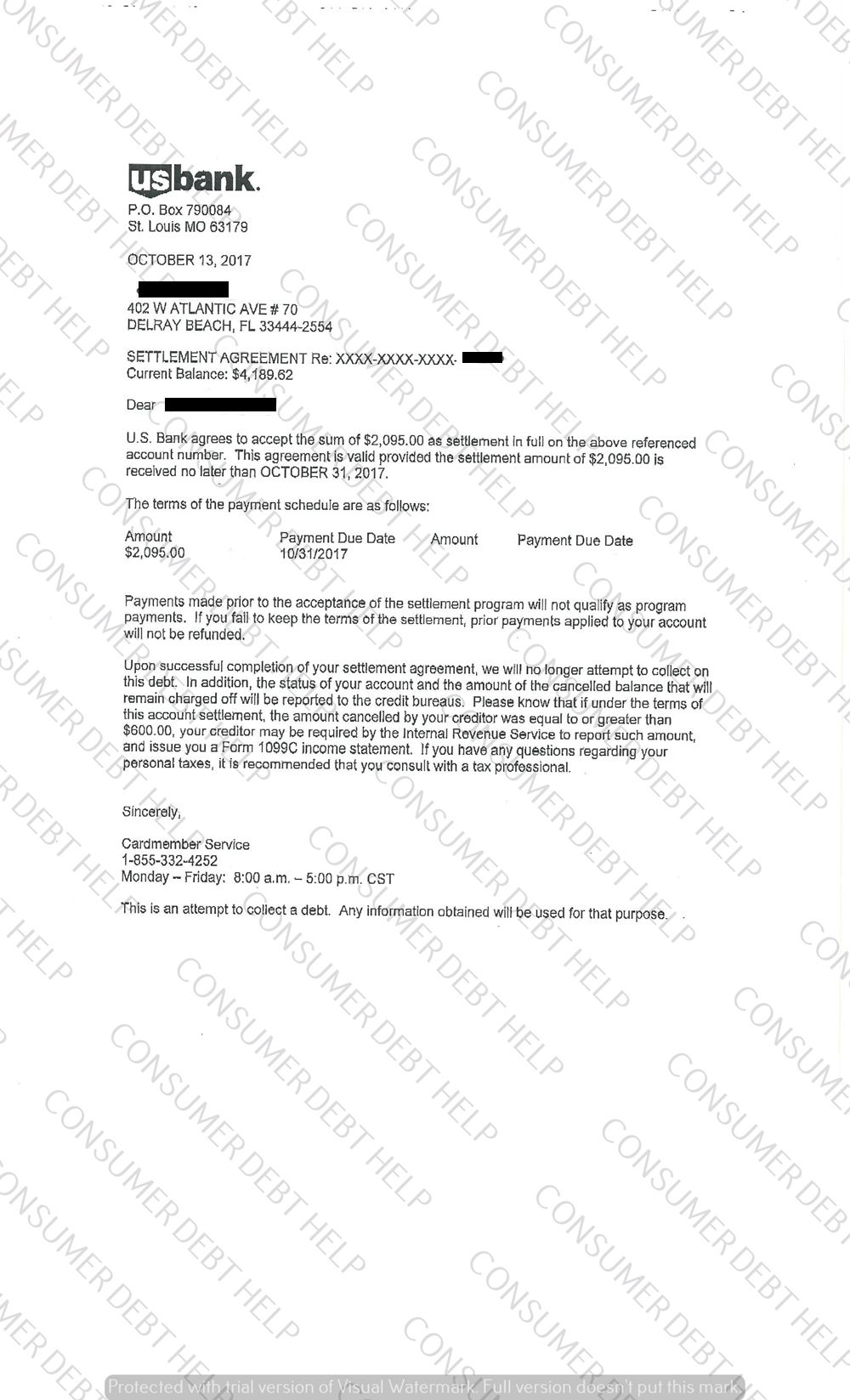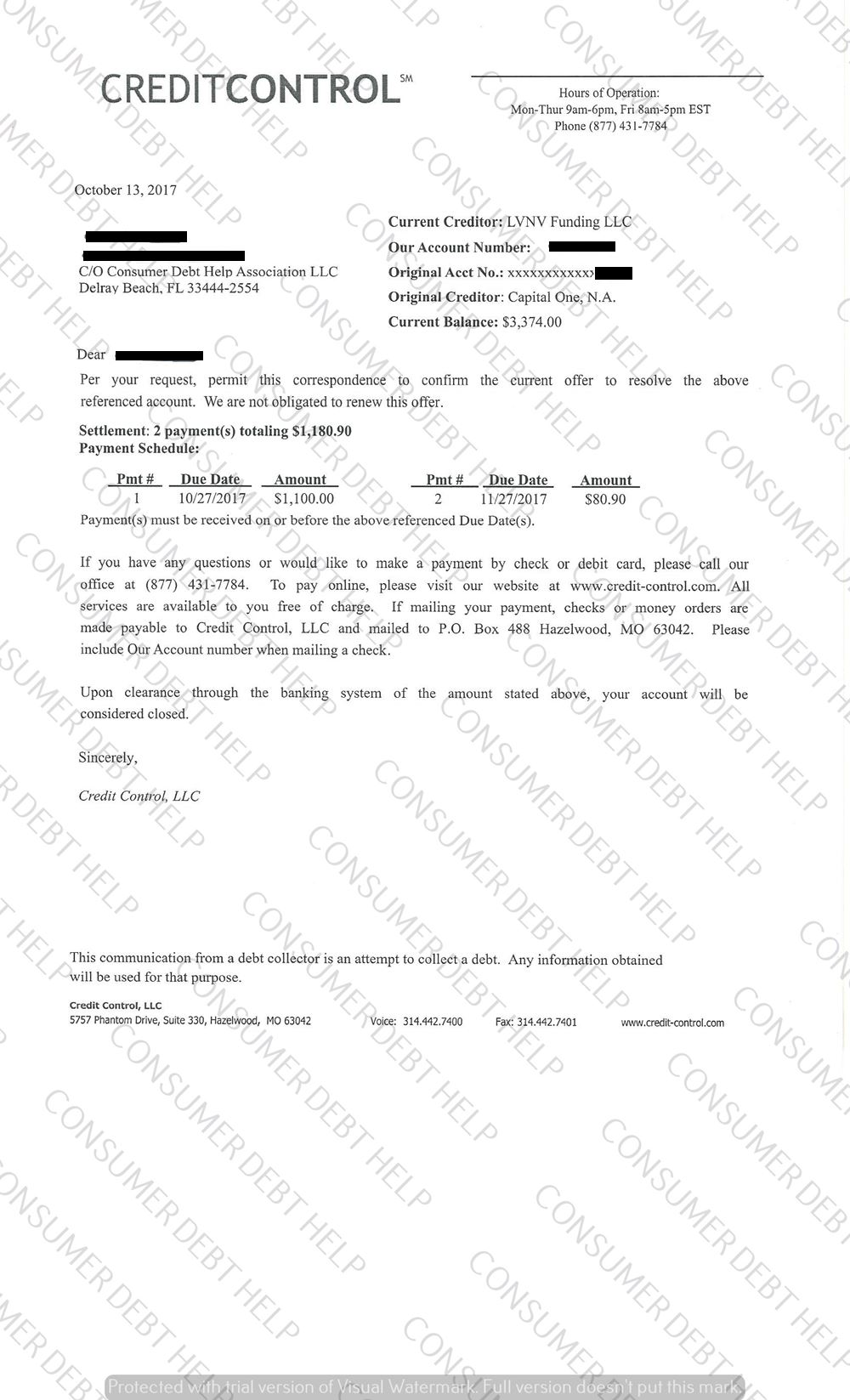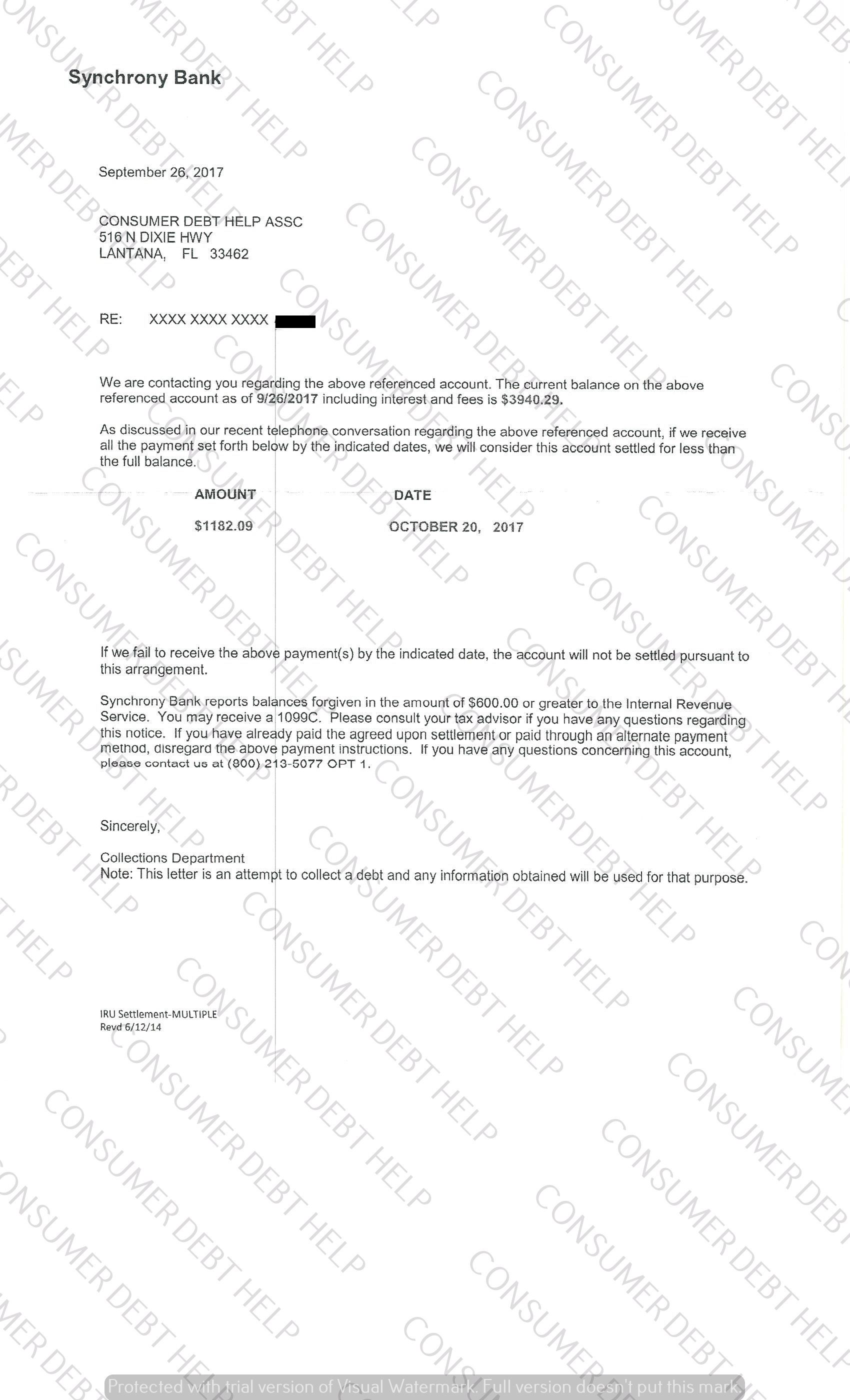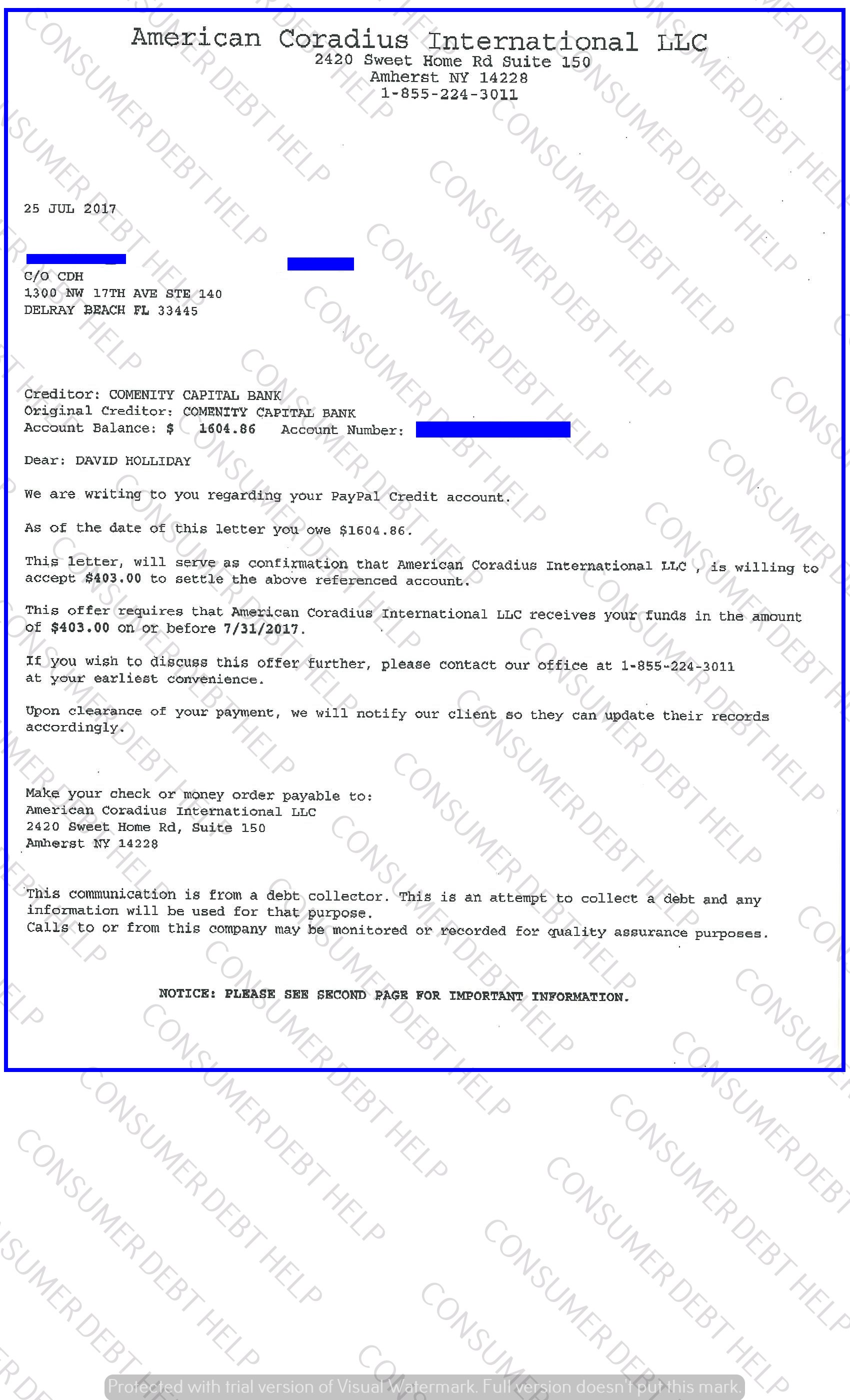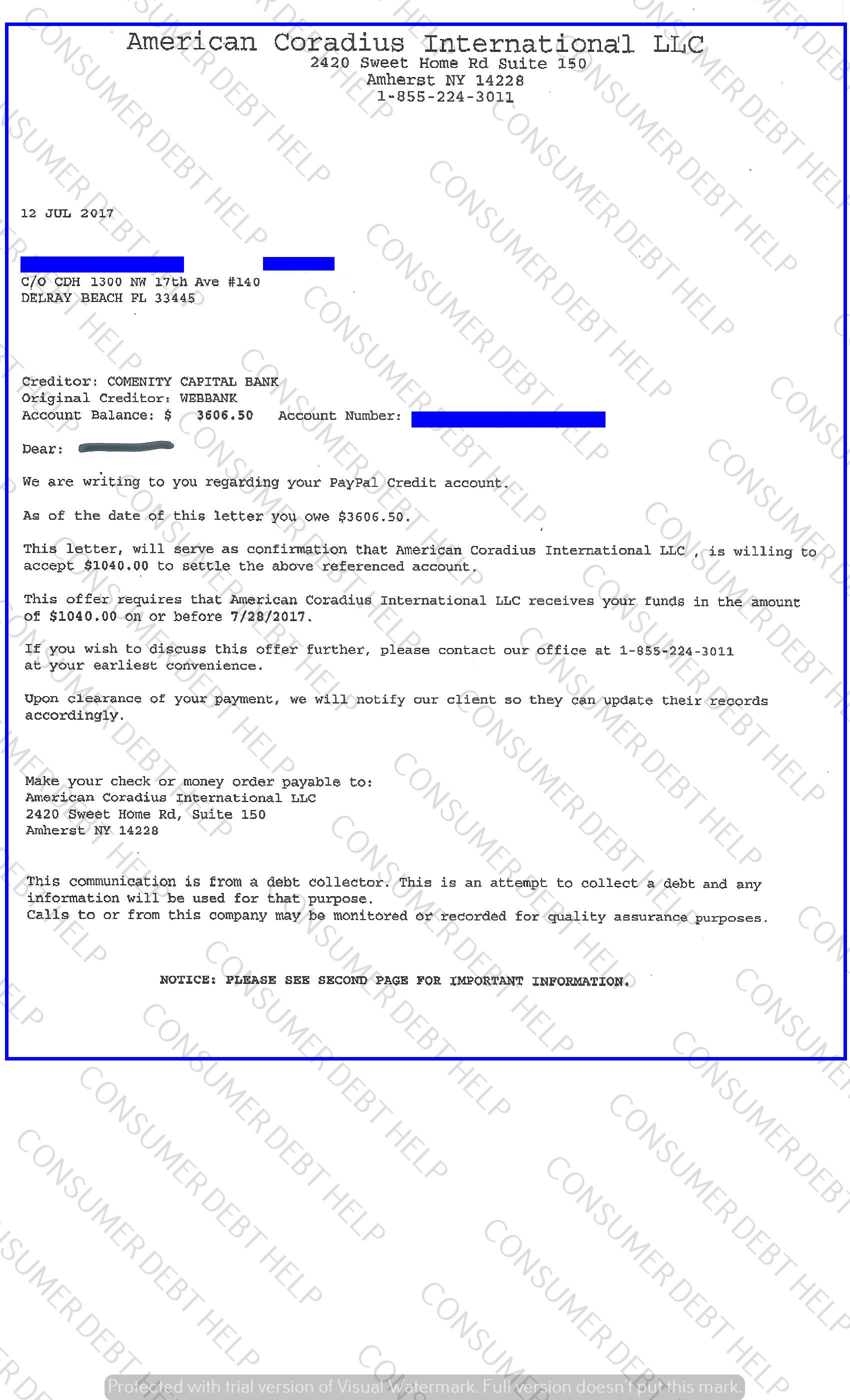Debt Relief Specialist shares a settlement letter from Capital One. Bal:$3303.00 Offer:$1156.05 Savings:$2146.95
Settlement Letter for Key Bank
Debt Relief Specialist shares a settlement letter from Key Bank. Bal:$4284.08
Offer:$1285.00 Savings:$2999.08
Settlement Letter from Sears
Debt Relief Specialist shares a settlement letter from Sears. Bal:$3538.86
Offer:$1238.60 Savings:$2300.26
Settlement Letter from Target
Debt Relief Specialist shares a settlement letter from Target. Bal:$2493.45
Offer:$748.00 Savings:$1745.45
Shares Another Client Review
Settlement Letter for US Bank
Settlement Letter for Capital One
Settlement Letter for Home Design
Settlement Letters from PayPal/Comenity Capital
Debt Relief Specialist wants to share a settlement letter from PayPal/Comenity Capital Bank
Balance $1839.38
Offer $460
Savings $1379.38
Savings 75%
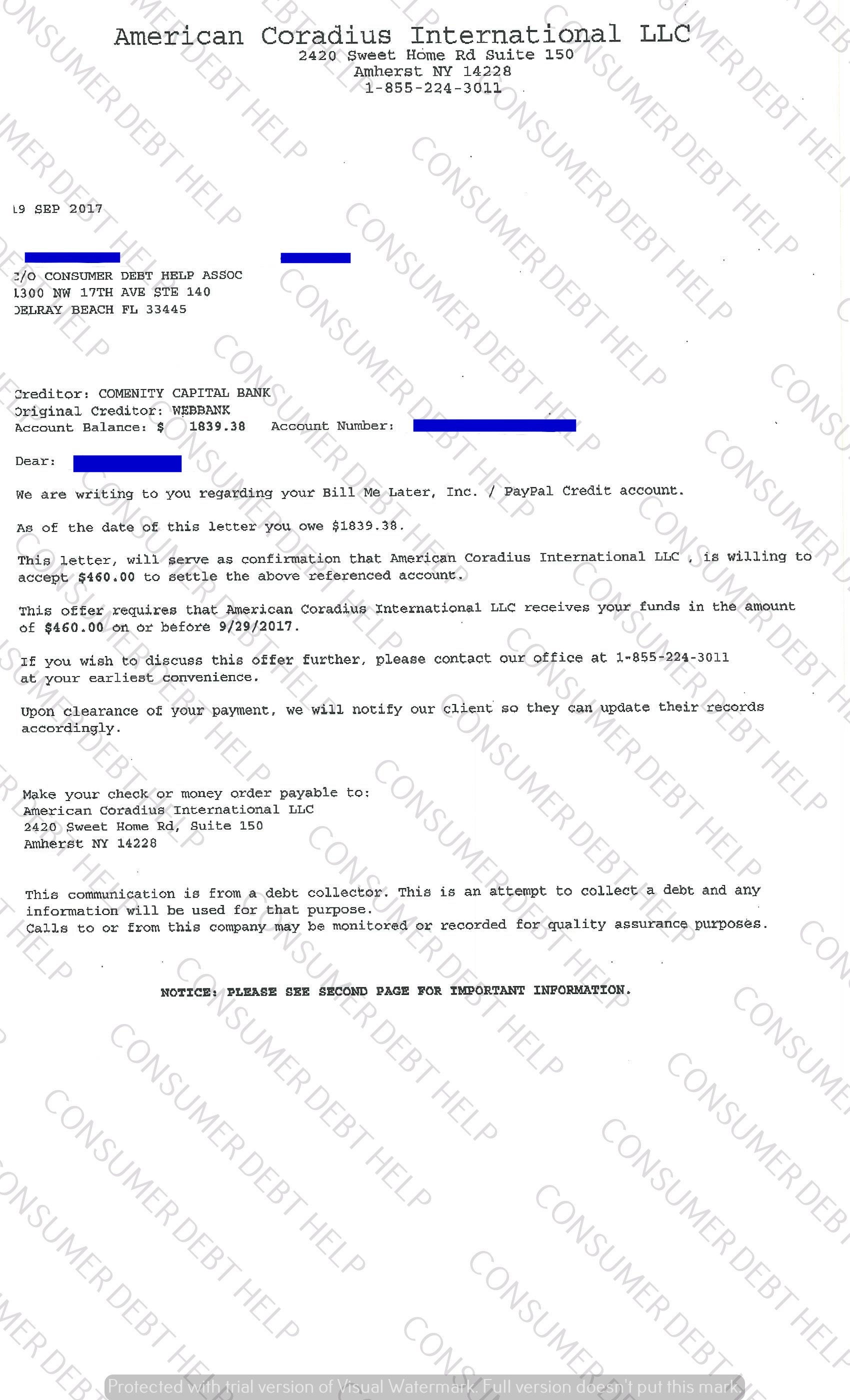
Debt Relief Specialist wants to share a settlement letter from PayPal.
Balance $1604.86
Offer $403
Savings $1201.86
Savings 75%
Debt Relief Specialist wants to share a settlement letter from PayPal.
Balance $3606.50
Offer $1040
Savings $2566.50
Savings 71%
Scam: Caller threatens arrest if you don’t pay
Scam: Caller threatens arrest if you don’t pay.
People across the country are forking over hundreds, sometimes thousands, of dollars in what they believe to be a fee to ward off arrest warrants.
Story Highlights
- Scammers are telling people they have arrest warrants to trick them into paying a fee to clear them
- Scammers have posed as local law enforcement in Kansas, Oregon, Georgia and other states
- Police warn that they never ask people to wire money
In a growing scam reaching people across the country, phone fraudsters are using the threat of arrest warrants to pressure people into forking over hundreds, sometimes thousands, of dollars.
Just recently, police in Georgia, Kansas, Oregon and Florida have investigated phone scams in which a caller impersonates a local police officer. The callers, manipulating caller ID to make the number appear to come from the local sheriff’s office or jail, tell potential victims they have an outstanding warrant for an unpaid debt, missed jury duty or some minor infraction and that a fine is due.
The callers convince people to make the payments by wiring it through Western Union or buying a prepaid credit card like Green Dot and registering it online.
Police don’t notify people about arrest warrants by phone, and they don’t accept money to clear them, the Collier County, Fla., sheriff’s office said in a warning last week.
“They try to make this as convincing and as frightening as possible,” says Kati Daffan, a staff attorney with the Federal Trade Commission’s Bureau of Consumer Protection.
In Georgia’s Floyd County, Amanda Middleton, 31, paid $1,550 to clear a non-existent arrest warrant related to a payday loan she never had.
Middleton, 31, got a call saying she owed $495 for a loan. She says she checked with her creditors and found no record of the loan. She had previous debt disputes after another Amanda Middleton failed to pay off a loan, she says, so she brushed it off and told the caller to e-mail proof.
But after a second call from a so-called police officer threatening to arrest her, Middleton gave in.
“He said, ‘In our eyes, you’re just refusing to pay the debt,'” she recalls. “‘We’re just going to have to proceed forward and have you arrested.'”
Her husband checked the number; it was the sheriff’s office. Middleton paid the $495, along with a $500 fine and several “litigation fees” — a total of $1,550.
Only after Middleton sent the money through a prepaid credit card did she call the sheriff’s office and learn there was no warrant.
“I don’t consider myself to be very naïve,” she said. “We were doing what you do in that call. I called all my creditors. I asked for documentation on it. My husband called the number back. I thought we were being very careful.”
Floyd County Sheriff’s Deputy Jerry Duke says he has seen earlier versions of the scam, when so-called loan-collection agents would try to convince people they had to pay off loans. Impersonating police is a new twist, he says.
It is nearly impossible to track down scammers, Duke says. Wire transfers and prepaid cards are untraceable, and manipulated phone numbers are tough to trace.
“There’s really no recourse for them,” Duke says. “The best thing that can be done is making people aware.” Continue reading “Scam: Caller threatens arrest if you don’t pay”



